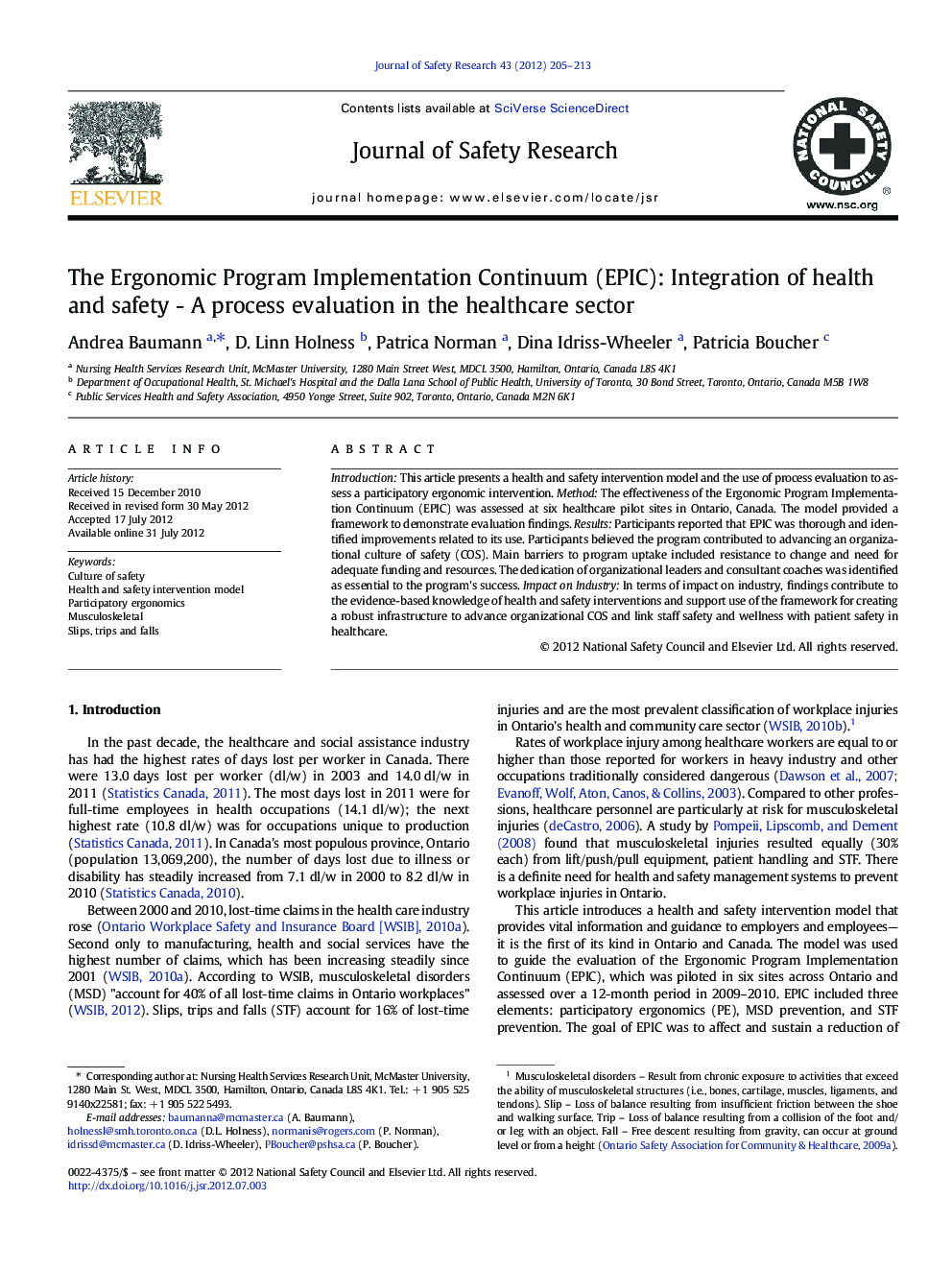| Article ID | Journal | Published Year | Pages | File Type |
|---|---|---|---|---|
| 587653 | Journal of Safety Research | 2012 | 9 Pages |
IntroductionThis article presents a health and safety intervention model and the use of process evaluation to assess a participatory ergonomic intervention.MethodThe effectiveness of the Ergonomic Program Implementation Continuum (EPIC) was assessed at six healthcare pilot sites in Ontario, Canada. The model provided a framework to demonstrate evaluation findings.ResultsParticipants reported that EPIC was thorough and identified improvements related to its use. Participants believed the program contributed to advancing an organizational culture of safety (COS). Main barriers to program uptake included resistance to change and need for adequate funding and resources. The dedication of organizational leaders and consultant coaches was identified as essential to the program's success.Impact on IndustryIn terms of impact on industry, findings contribute to the evidence-based knowledge of health and safety interventions and support use of the framework for creating a robust infrastructure to advance organizational COS and link staff safety and wellness with patient safety in healthcare.
► In this study, we present a health and safety intervention model in six pilot sites. ► Process evaluation is used to assess a participatory ergonomic intervention and demonstrate the health and safety intervention model. ► Findings contribute to evidence-based knowledge of health and safety interventions. ► Supports evidence for use of framework for creating a robust infrastructure. ► Advancing organizational culture of safety is linked to staff safety and wellness.
